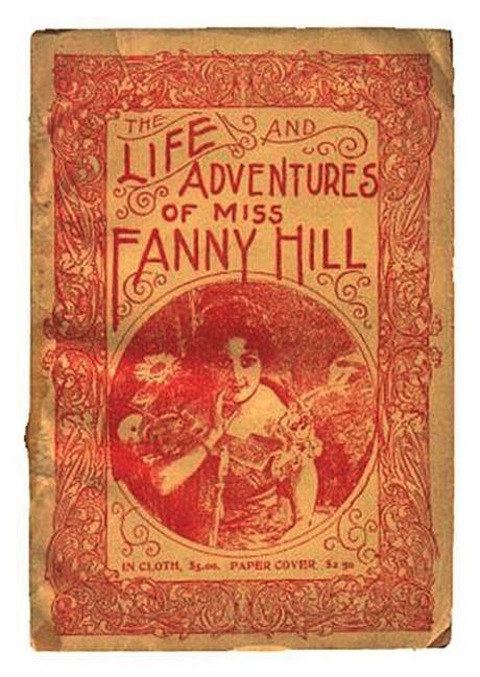
In a recent interview with literary historian Loren Glass about the achievements of taboo-busting publisher Grove Press, I wondered whether anyone growing up today could conceive of a book causing a public scandal, let alone a trial that reaches the Supreme Court. Grove had the highest-profile of its several legal skirmishes after publishing Henry Miller’s Tropic of Cancer in 1961. Two years later, G.P. Putnam Sons would drop their own literary bombshell in the form of Memoirs of a Woman of Pleasure, better known by the name of the protagonist there referenced, Fanny Hill, who, orphaned at fifteen, throws herself into a career in “profit by pleasing.” Originally written in 1748 by John Cleland, a former British East India Company employee locked up in debtors’ prison, the book broke new ground by offering almost nothing but a string of elaborately crafted (and, technically, “vulgar” language-free) sex scenes.
“A partial list of the book’s adventures includes an orgy, sex between women, masturbation, masochism, cross-dressing, and a detailed sodomy scene that is one of only two known explicit depictions of male same-sex ardor in the language before the end of the 19th century,” writes the Boston Globe’s Ruth Graham in an article on the 50th anniversary of the Fanny Hill-vindicating verdict. “The book still has the capacity to shock. As [assistant attorney general William I.] Cowin noted in front of the Supreme Court, after the first 10 pages of the novel, ‘all but 32 have sexual themes.’ But Fanny Hill would not have survived so long if it were merely scandalous in 18th-century terms: It remains revolutionary today because, as English critic Peter Quennell wrote in the introduction to the 1963 edition, “It treats of pleasure as the aim and end of existence.” You can find out just what this means by downloading the book free from Project Gutenberg or iTunes, or listening to a free audio version here. Whether these text-only editions count as worksafe all depends, of course, on the size of your screen and the literacy of your co-workers. You can see bawdy illustrations that appeared in historical editions here. Note that they are very definitively NSFW.
Related Content:
74 Free Banned Books for Banned Books Week
Colin Marshall hosts and produces Notebook on Cities and Culture and writes essays on literature, film, cities, Asia, and aesthetics. He’s at work on a book about Los Angeles, A Los Angeles Primer. Follow him on Twitter at @colinmarshall.


Leave a Reply